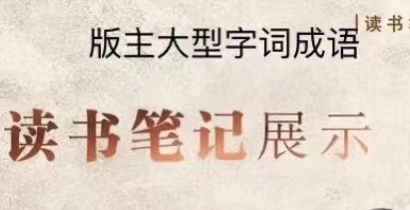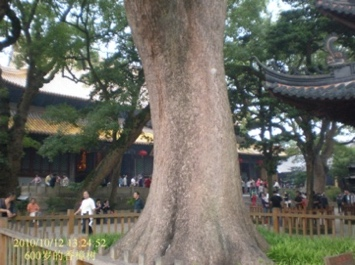Travel life is a kind of life everyone wants to enjoy, but such a life belongs to a need of a high level. In 1970’s I read the theory of psychologist Abraham Maslow, who delineated a hierarchy of needs that drive your motivation.
The need on the first (bottom) layer is physiological, including food, water, air, clothes, shelter, rest, exercise, and etc. People have to need them to survive.
The second layer is the need of security, which is also one of the conditions for one’s survival. People need the order and stability. Being laid off, the war, the natural disaster, the political persecution are all the threats to one’s security. We need stable income, and live peacefully. All kinds of social insurances are designed to meet the security need of the people.
When physiological and safety needs are fulfilled, the third layer of human needs is social and involves feelings of belongingness. Humans need to feel a sense of belonging and acceptance, whether it comes from a large social group, such as clubs, office culture, religious groups, professional organizations, sports teams, gangs, or small social connections (family members, intimate partners, mentors, close colleagues, confidants). They need to love and be loved (sexually and non-sexually) by others. In the absence of these elements, many people become susceptible to loneliness, social anxiety, and clinical depression.
All humans have a need to be respected and to have self-esteem and self-respect. Esteem presents the normal human desire to be accepted and valued by others. People need to engage themselves to gain recognition and have an activity or activities that give the person a sense of contribution, to feel self-valued, be it in a profession or hobby. Imbalances at this level can result in low self-esteem or an inferiority complex. People with low self-esteem need respect from others.
“What a man can be, he must be.” This forms the basis of the perceived need for self-actualization. This level of need pertains to what a person's full potential is and realizing that potential. Maslow describes this desire as the desire to become more and more what one is, to become everything that one is capable of becoming.
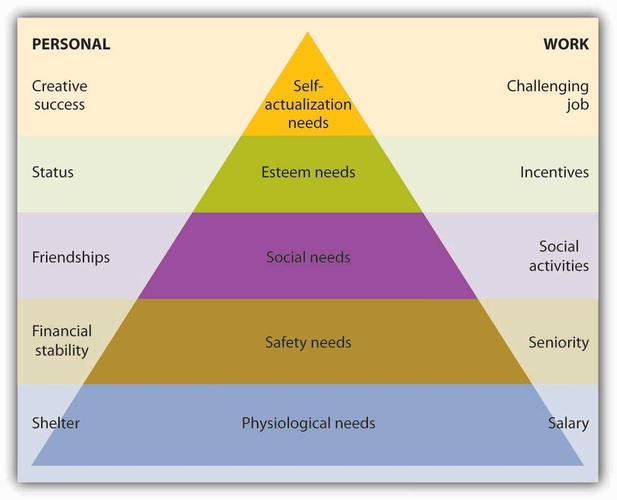
Maslow's Theory of Hierarchy of Needs
With the development of the psychology, biology and anthropology, the theory of a hierarchy of needs was faced with modification and development, debate being very fierce. In 1970, new version of the publication was changed into seven layers of needs, between the layer of esteem and that of self-actualization are inserted another two layers, namely the need of knowledge and that of beauty, which are the high layer needs next to self-actualization.
Placed on the above layer of esteem, the need of such knowledge is to search into the objective world one is interested in based on the pleasure rather than for the purpose of one’s survival or one’s position. One form of the demonstration is to read more than ten thousand books and to travel more than ten thousand li. Being puzzled means being oppressed and understanding is cozy. This is not for money, or for materials.
The need of beauty means that one enjoys his or her life with their feeling organs and spirits. To enjoy the beauty needs wisdom, knowledge and good emotion. The real enjoyment of the beauty needs one’s taking part in the creation of the beauty rather than only enjoying it. The creation is much more than the enjoyment. The creation of the beauty is not only restricted to the art. Any activity of any career can do it, whether you are a politician, a businessman, a farmer, a worker, a teacher, a doctor, a science researcher, an inventor, even a hairdresser, a cook, a stonecutter, a carpenter, a brick layer, or a cleaner.
I have the idea that it is appropriate to add the needs of “knowledge” and “beauty” to the hierarchy. The self-actualization is on the top of the pyramid and it is a level of a saint, which a lot of people feel too far behind to catch up with. However, the high layer need of knowledge and beauty can be met for a lot of people. For example, the travel is an important means and form to meet such needs.
Because it belongs to the high-layer need, some preconditions are essential. Firstly, you must have a certain economic base because the travel will cost money. Secondly, you must have time, which means that you don’t need to work every day for your basic needs and you have holidays you can spend freely. Thirdly, you have positive emotions, which ensure your strong interest in the travel. (Some people adjust their emotions by means of the travel.) Lastly, you must have knowledge and are skillful at appreciating what you see. It is not only an eyeful you can get, you should make full use of your head and do some complex work, which can keep you always delighted in it and never be bored with it.
Since we began to get the salary in August of 1970, we have been living in low water, and dare not think of travelling to somewhere to see what we like. In Mapo there was no chance to go on errands, and in Zhengji, I held the position of the team head of the teaching and research and could attend some conferences, but could not go far from Xuzhou. I went once to Kaifeng, He’nan Province to attend an academic conference; all the teachers of the English team paid a visit to the city of Lian’yun’gang and had a tour in the Hua’guo Monkey Mountain; all the faculty of the school had a journey to Confucius Hometown and Tai Mountain of Shandong in two groups, and my wife and I went there separately; in the summer vacation of 1985, each teacher got ¥15 for the journey and our family of four went to Hanzhou, the capital of Zhejiang Province. ¥15 was not available for a one-way train ticket to Hanzhou. It was too luxurious for us to spend the night in a hotel. We lived in a flat room one of our familiar owned. We bought vegetables and rice to cook and had a mean in a bar once in a while. Working in Pengda, I had chances to go to other cities. After 30 years I went to Beijing again (the first time was in 1966 during the Cultural Revolution). I went to Zhengzhou, the capital city of Henan Province to attend a teaching and research meeting, and paid a visit to the Huang’he scenery and Shaolin Temple in the county of Dengfeng. In 1996, the faculty of our department travelled to the city of Qinhuangdao, Hebei Province, where Baidaihe has a beautiful sea beach. All of us lived in the dormitory of Yanshan University, which is Liangliang Song’s alma mater.
All the travel activities mentioned above depended all on the school or on the official business with a lot of attached conditions. We had never spent our own money travelling for the purpose of satisfying our own interest. What our idea was that one’s income should be spent on daily life expenses and in educating children. It was luxury and even wasteful to spend money on the travel.
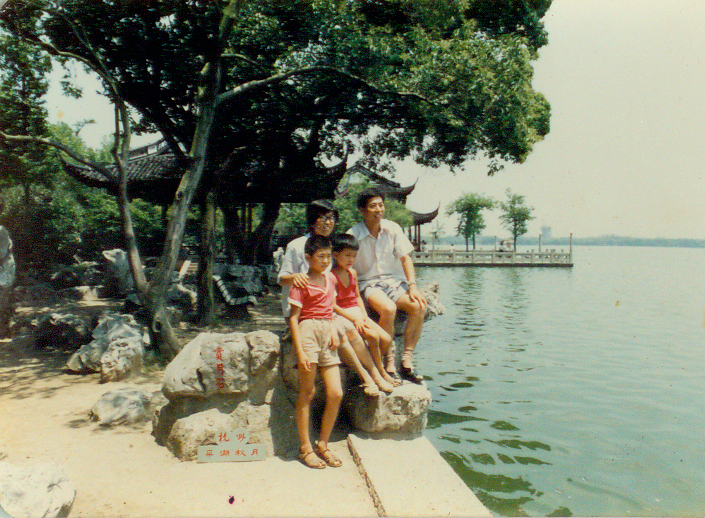
1985 sparing touring in Hanzhou
The summer vacation of 2000 was coming and the condition for us to travel got ripe. For the first, we had a wonderful feeling for the qualification for the professorship had been acquired. For the second, our economic condition had improved a lot. It was six years since Li Song began to work and he married Li Xu on Oct. 30 of 1999. They lived separately and independently in the Community of Fang’nan. Liangliang Song entered Beijing University of Aeronautics & Astronautics, reading for master’s degree and needed us to support him ¥400 each month. The exact number of our salary was as follows: August of 1999, Meilan’s Zhang gross salary was ¥1109, net income $960;May of 2000, her gross salary was ¥1251, net income ¥1165; Defu Song’s gross salary 1354 and net income ¥1258. In addition, writing and selling books with Mr. Shihua Li, plus author’s remuneration would increase our income more than ten thousand yuan each year. The introduction to tourism tells us that the travel is a kind of higher layer of consumption meeting the need for the people to pursue the spirit enjoyment. When a person has met his or her own need of materials, the motivation to travel will arise if he or she remains a certain amount of money. Only when someone has a certain economic power, can the travel activity be put into practice, which is the suitable explanation of the theory of a hierarchy of needs.
We decided to travel to Qingdao. During the Cultural Revolution Meilan Zhang had been to Qingdao and had a photo with Fei Huang on the trestle bridge, the Qingdao symbol. There were tourist trains between Xuzhou and Qingdao. In the morning we got on the train and in the afternoon we got to Qingdao Railway Station close to the beach. We didn’t dare to stay in a grand hotel and was wandering in the street when a person introduced us to a family hotel, the price of which was moderate and whose sanitation was proper.
Qingdao is located on the southern tip of Shandong Peninsular close to the shore of the Yellow Sea. The adjustment of the sea environment, being influenced by the southeast season wind and sea current and water mass, Qingdao is characterized by the ocean climate, the air humidified and the temperature moderate. There was no hot summer or extremely high degree and therefore it was an ideal summer resort. There being a lot of natural gulfs, bathing places are famous in the world. From the west to the east, the four sea water bathing places are close to each other. The first one is located at Huiquan gulf, with 580 meters long and 40 meters wide sand. It is believed to be No. One sea water bathing place in Asia. Surrounded by mountains from three sides, trees green and modern high buildings and traditional villas in perfect harmony, the scenery is very beautiful. Within the gulf, the sea water is clean, the wave is tiny, the beach is even, and the sand is soft and silver. As a beach bathing place, its natural condition is perfect. I was anxious to see it when a minibus stopped close to us, asking us to go to Laoshan beauty spot, saying that we should hurry or would be jammed, and delayed. It was for the first time for us to travel and had no experience. The price inquired, we got on the minibus.
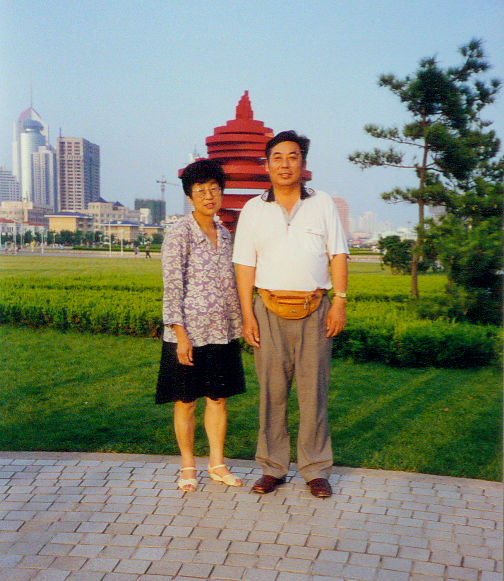
May 4th Square of Qingdao
Laoshan Mountain is located in the Laoshan district, in the eastern part of Qingdao, 40 km from the city centre, standing close to the Yellow Sea. Sea and mountain close to each other, the brightness of the mountain mist in the sun changing irregularly, the cloud and the air moving apart from each other and getting together, it is a mountain on the sea, known far and wide. It was created during the cretaceous period (65 million years ago), and formed into powerful, pageantic, peculiar and pretty landform characteristics. There are heirographens everywhere. What impressed upon me most was that the bus decreased the speed and the guide girl asked us to see a frog stone. A huge rock appeared and looked like a big frog. Laoshan is 1132.7 metres in elevation. We climbed slowly and enjoyed the scenery along the mountain steps and before we knew we got to the top. 55 years old, we had rather good legs, not thinking of riding the cable car.
Located in the southeast of Laoshan, Taiqing beauty spot was by the name of the famous temple Taiqing Palace, which stands on the foot of Baozhu Mountain, which has 7 peaks surrounding the valley from the east, north and west, forming a particular geographical environment. The warm and wet air current is blowing into the southern gulf, called “Taiqing Gulf”, forming the climate of subtropics. Accordingly, it is called “Laoshan Little Jiang’nan”, south of the Yangzi River.
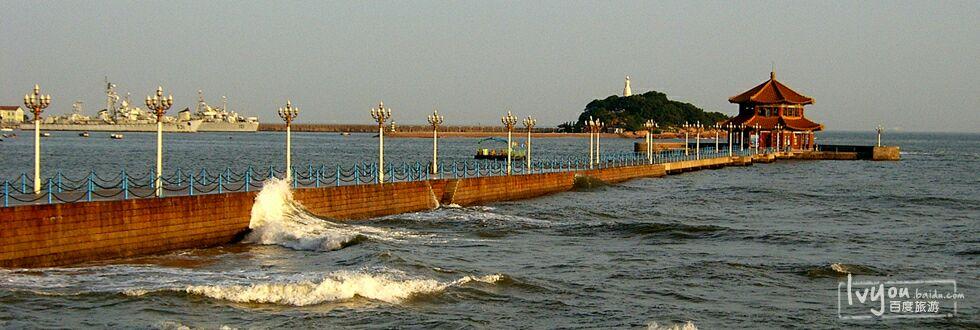
Trestle Bridge of Qingdao
The next day we walked on the trestle bridge, the Qingdao symbol, which was connecter to the prosperous downtown area, Zhongshan road, and stretched into the sea more than 400 meters. Walking on it, we saw the beautiful scenery of the Qingdao gulf. We came in sight of clusters of white spray, points of red reefs, red tiles and green trees lying around, high pavilions and turnabout waves staying on the green waves. Experiencing changes during hundreds of years, it appeared vigorous. We rode on a yacht and toured in the small gulf, by the side of the Little Green Island, on whose top stood a white pavilion like a beautiful girl. Seen from the yacht, Qingdao’s high buildings were close to each other. Red tiles, green trees, blue sky and turquoise sea formed the beautiful body of Qingdao. Red rocks, tiny waves, colorful sails, golden sand constructed a beautiful view.
After landing, we got to the bathing place and had a look. Large as it was, the beach was crowded with lots of people, touching each other. Seen from the shore, the sea was full of black points, human heads. Meilan Zhang was unwilling to go into the sea, and not willing to go among the crowd, so we went along the shore for a quite long time to a place, where the sand was not so soft or fine, but there were very few people, so it was graceful. In the summer I was such an animal as was eager to swim once seeing the water. The sea beach was a strong temptation hard to resist. The foreshore was so shallow that the water reached my waist after I walked a very long way. Finally, the water was deep enough for me to swim and I felt it very far from Meilan Zhang, who sat on the beach seeing the sea. “Stone senior” was not far from me, and I could see him clearly. In fact, it is a 17-metre-tall reef pillar like a bamboo shoot, which is a hundred meters far away from the shore. It looks as if a senior were sitting on the bluish green wave. It was said that in ancient times, there was an old fisherman whose beautiful daughter was kidnapped by Longwang (Dragon Lord). He had no choice but sit on the shore close to the water to look forward to seeing his daughter coming home. As time went on, he turned into a reef, so “stone senior” being called.
We spent three nights in Qingdao and on the fourth day we rode in a coach to the city of Yantai, in the northeast direction. The cities along the sea on the Shandong Peninsula have some similar characteristics. All of them are close to the sea and the mountain, with comfortable climate, namely not extremely cold in the winter and not extremely hot in the summer either. They are all ideal resorts during the summer. Arriving at Yantai, we began to think of the whole plan of this travel. We decided first to buy train tickets to Xuzhou and then determine our journey route in the following days. There was no advance booking office close to the train station and we had to go the downtown and stay in a hotel close to the office selling the tickets in advance. The next early morning we stood in the queue until we got two berth tickets five days in advance at half past nine. Itinerary could be determined now. My suggestion was passed that we crossed the Bohai Gulf to get to Dalian and then came back to the tip of Shandong Peninsula, the city of Weihai, where we could take a coach back to Yantai. Touring around the Bohai Gulf would satisfy my greed and it could be called a great feast. In the morning we walked along the beach to the Moon Gulf, enjoying observing the high hotel building facing to the sea, where only the rich could stay. We thought so at that time because we could only afford the family hotel. At noon, the temperature rose and I went to swim in the sea for a second time. What interested me most was that there were a lot of small jelly fish floating on the water, half alive and half dead. You could carry them on your palms to have a careful look at them.
The following is a detailed account of an adventure. After we got the train tickets, we immediately bought the sea craft tickets to Dalian. Meilan Zhang is always an early bird and we got to the shipside one and a half hour ahead of time. It was too early so we went to the farming market to see whether there were some proper marine products and got to the waiting room half an hour ahead of the ship starting off. Queuing and then checking in, we were told that our tickets were not for the ship here, but for the ship at another shipside, which was rather far away. We didn’t know what to do. Someone suggested us taking a taxi, and maybe we could catch the ship. We were extremely puzzled about what had happened. We bought the ship tickets close to the waiting room and why we had to go far to go aboard. The taxi driver told us that because of the reform and vitalization of the economy there appeared a lot of ship companies, the competition being fierce. The ship companies far away from the old waiting room also sent someone to sell their tickets nearby. The old wharf was a passenger one and we would go aboard on a roll-on and roll-off ship, loaded with freights, vehicles and also passengers. The taxi speeded up and a high ship like a high building appeared in our sight. Close to it, we saw vehicles in line going aboard, indicating the ship had not left the harbor. We had been having our hearts in our mouths and now we set our hearts at rest.
Crossing the Bohai Gulf in the daytime, we could see everything. It being fine, our heart being at rest, we saw the sea water was much bluer than I had thought it should be, nourishing our eyes indeed. It was the first time for us to ride on a sea ship, feeling fresh. We had ridden the wave close to the beach, and now we were in the middle of the sea, boundless in all the directions. The blue sky and the deep blue sea water made you unable to distinguish between the sky and the sea. Slight wind, there were no huge waves, which were shining brightly. The sea water in the distance looked like pieces of scales in the sun. In such a circumstance, our breadth of mind became full and great, consciousness sober and breath free, and we were completely relaxed and happy.
When we got to the city of Dalian, the evening was coming. It was not long before we were caught by a travel agency and driven in a minibus to a hotel, which was also a family mode, but quite large and professional. It was decided immediately that we would go to Lǚshun the next morning. The minibus would come to pick us up. Our first feeling was that there were a lot of tourists and the service was good and full. The key was that you must have enough money. For the dinner we had fresh and delicious yellow fish.
The next day we went to Lǚshun, and the more southward, the narrower the land was. Only when you climbed and got to the top of a mountain, called Laotieshan, could you see the real face of the Liaodong Peninsula. It is the utmost south tip of the Peninsula, looking at the Shandong Peninsula across the sea. The south side of the mountain top was terribly steep, falling directly to the seawater. There used to be hostilities in the history. We visited Lǚshun Navy Port, the war ruins between Japan and Russia, 203 Upland and etc. What puzzled me most was that why the war between Japan and Russia was waged in our territory. It was incredible and ridiculous.
In July of 1894, encouraged by the US, the Japanese launched a war, called Jiawu[1], against China and Korea, and defeated Qing Dynasty Army. The Qing Government was forced to sign the Sino-Japanese Treaty of Shimonoseki, agreeing to the cession of the Liaodong Peninsula to Japan, which was completely against the intention of Russia, who wanted to occupy the whole northeast China. On the eighth of February of 1904, the Japanese navy conducted a raid on the Russian fleet anchored in the Lǚshun Port. On the tenth the Japanese Akihiko issued an order to declare war on Russia and at the same time Russia also declare war on Japan, as a result the war broke out within China. On 12th, the Qing government announced the so called “neutral stand” shamelessly. The war between Japan and Russia lasted until the Battle of Mukden [2] in January of 1905, in which 40,000 Russians and 20,000 Japanese were dead. In the end Japan won the war. The imperialists made dogfight wars within China, in order to partition it to obtain their interests. The Qing Government was so decayable that they put aside the country’s sovereignty and the people’s lives and property, letting the steel boots of Russia and Japan tread our beautiful territory.
In addition, we toured the beautiful beach city of Dalian. What impressed upon us most was large pieces of lawn, forming beautiful environment and delightful landscape. The city central garden square was full of flowers and green lawns. The shapes of buildings were different and colorful, European classic style mixed with the modern art modeling. Situated beside the sea at the foot of a mountain, the beach highway connected several visual sights, causing visitors to linger on without any thought of leaving.
We spent three nights and two days and went aboard on a passenger ship to another beach city of Shandong Peninsula, Weihai. Arriving, we inquired how to go to the utmost eastern tip of Shandong Peninsula. We were asked to take a coach to Chengshantou, the price being cheap. Chengshantou was the place where we could see the sunrise clearly at the earliest time in China, called Cape of Good Hope of China. It was really called “Cape of Good Luck”, attracting 800,000 tourists from home and abroad each year. From the top of the mountain to the sea water level, a vertical angle was formed, making your blood run cold. Giant waves broke the rock, the spray thrown up, sounding like a thunder. Seagulls were flying among the mist, which made me think of the sentences written by Russian litterateur Gorki, depicting the petrel: “flying bravely and freely above the white-capped sea waves!”, which is also suitable for the seagulls.
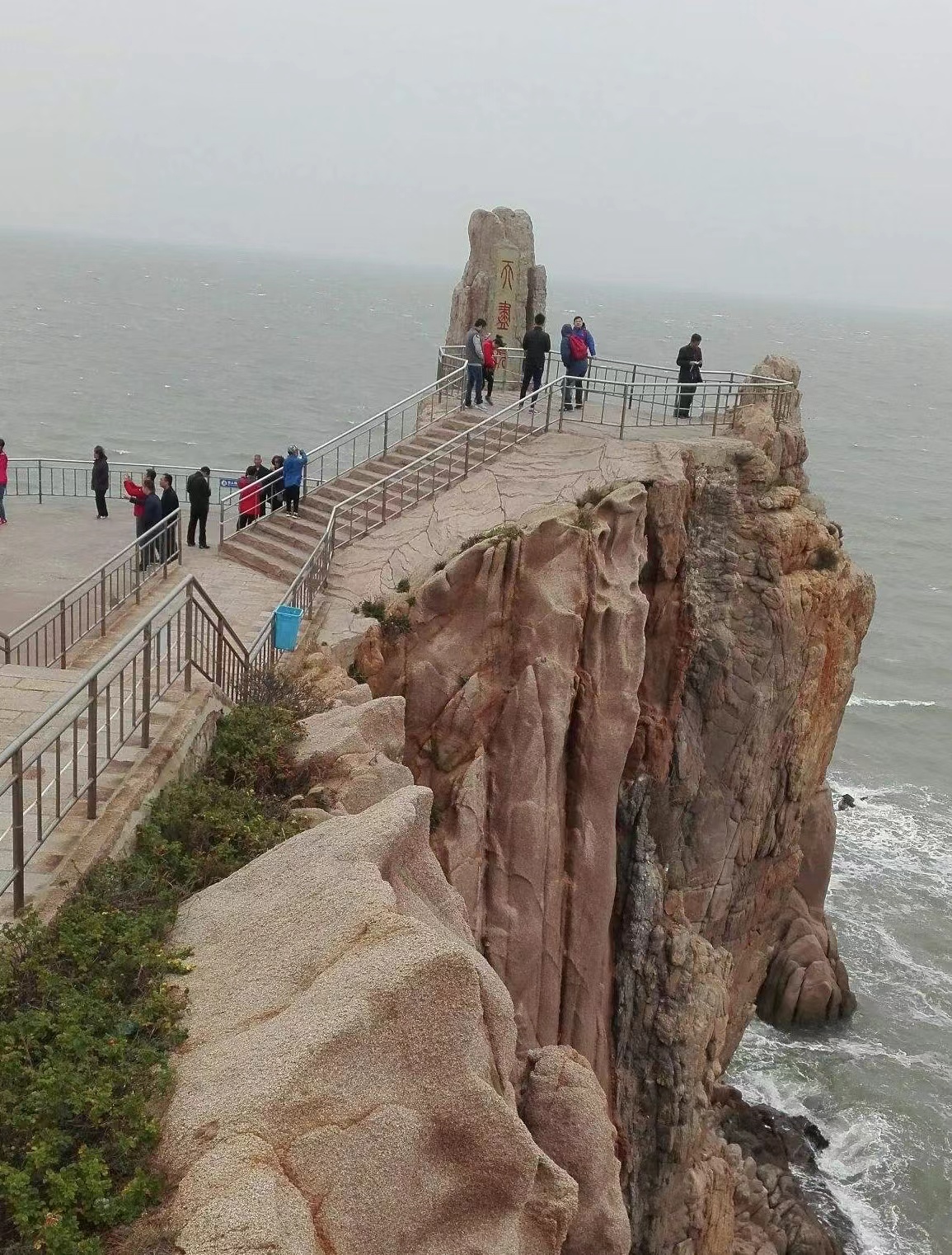
the utmost eastern tip of Shandong Peninsula
Travel let you enjoy the scenery, understand the history, broaden your sight, add to your knowledge, satisfy the need to seek for novelties, regulate the emotions, realize the life, become conscious of life, grow sentiment, maintain fitness and etc. Our travel life has just begun and it will exert positive influence on our later life. An ambitious plan rises in my mind, which causes the mysterious longing for the future.
April 24, 2011, in Xuzhou
Proofreading on March 19, 2012, in Chicago
Uploading on Aug 7, 2023, in Xuzhou
Notes
Jiawu war took place: Jiawu was the year of 1894. The Chinese sexagenary cycle, also known as Stems-and-Branches, is a cyclic numeral system of 60 combinations of the two basic cycles, the ten Heavenly Stems and the twelve Earthly Branches.



